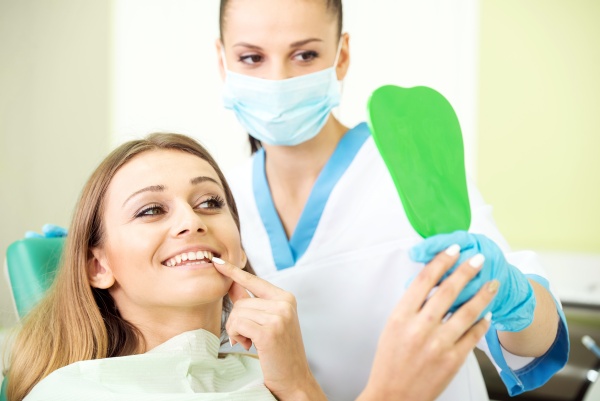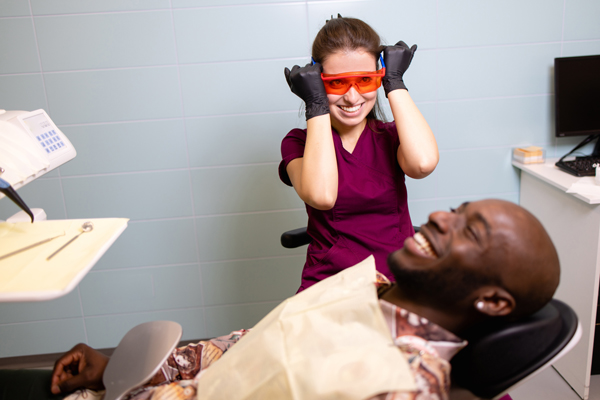Urgent Signs that You Should Visit the Dentist

If you have tooth or gum pain and are wondering if you should visit the dentist, you are facing a decision millions of people have to deal with every year. In general, most dental problems require the assistance of a dentist or at least a dental hygienist. However, some dental maladies are worse than others.
If your pain is considerable or if you are worried the tooth will fall out, the decision to visit with the dentist is not difficult. If the pain is not significant, it is much more of a grey area. Here is a look at some of the top signs that indicate you should visit with the dentist.
A Knocked-out Tooth
If your tooth is knocked out or becomes loose, following contact of any sort, you should visit with the dentist right away. Do not delay. The sooner you have the tooth tended to by a professional, the better the chances are of saving it. The dentist might be able to reinsert the tooth back into position and preserve it.
You can do your part by picking up the tooth by the top or the crown. Do not touch the tooth root. Rinse the tooth but do not scrub it. If you can reinsert the tooth back into the socket, go ahead and do so. Otherwise, put the tooth in a small amount of milk and visit with the dentist right away.
A Chronic Toothache
Chronic tooth pain is a surefire sign your mouth needs professional attention. Whether you have an infected tooth pulp or mild tooth sensitivity, the dentist will determine the cause of the pain and recommend treatment. Have a professional tend to your tooth pain now so you do not end up with an even more expensive treatment in the months or years to come.
A Tooth Abscess
Dental abscesses are particularly painful to the point that they can threaten the patient's life. Abscesses occur when pus accumulates in the tooth, causing an infection. Abscesses can cause everything from tooth sensitivity to fever, a swollen face, tender lymph nodes and other conditions. It is even possible for the abscess to move into the jaw, nearby tissue and other portions of the body.
A Chipped or Cracked Tooth
If your tooth is fractured or in considerable pain, rinse out your mouth with warm water. It is important to make sure that you do not accidentally swallow any portion of the tooth when doing this. Put a cold compress against your face to minimize the swelling. Visit with the dentist right away for an assessment and strategy to return your smile to normal.
Swollen, Inflamed or Bleeding Gums
If your gums are excessively inflamed or swollen, meet with your dentist. While some bleeding will occur when flossing, an increase in bleeding quantity or frequency is cause for concern. It is possible you have periodontal disease yet you will not know until you meet with your dentist.
For more information or to schedule an appointment with Long Grove Dental, request an appointment in our Long Grove dental office here: http://www.longgrovedental.com. Or call us at (847) 636-5020.
Recent Posts
Wondering when you should see an emergency dentist? Read on to learn more. Regular dental care can prevent emergency dental treatment. Unfortunately, dental emergencies do happen unexpectedly, even if you brush and floss regularly. In such cases, it is a great idea to visit an emergency dentist immediately.Many people do not know whether their dental…
While it is always a good idea to have an emergency dentist on call, individuals can avoid a dental emergency and all the pain, cost and hassle that comes with one by taking preventative measures. In many cases, this simply entails adopting healthy lifestyle habits.Dental emergencies, which range from toothache to fractured teeth to abscesses,…
Wondering when you should see an emergency dentist? Emergency dentists are general dentists who have undergone additional training to be prepared for urgent dental issues. Some of the more common emergent issues include broken teeth, dislodged teeth, abscesses or bleeding gums. An emergency dentist is the best resource to make use of when the gums…
Visiting an emergency dentist while pregnant can seem quite frightening, but dental accidents do happen and they are unpredictable. Thankfully, emergency dentists exist and they can help treat any dental emergency that arises. Being pregnant and experiencing a dental emergency at the same time can cause a great deal of anxiety, but emergency dentists are equipped…


